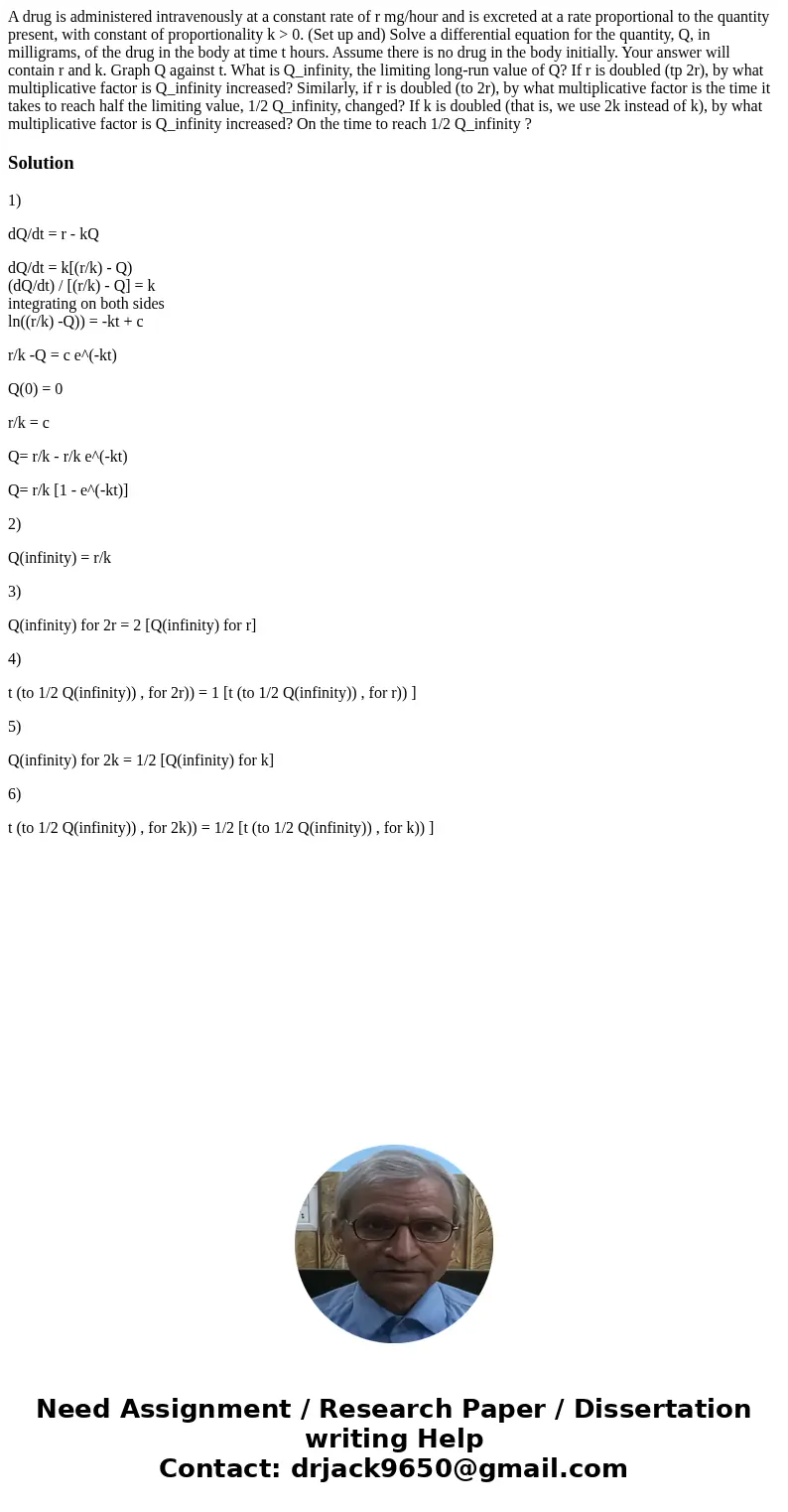A drug is administered intravenously at a constant rate of r
A drug is administered intravenously at a constant rate of r mg/hour and is excreted at a rate proportional to the quantity present, with constant of proportionality k > 0. (Set up and) Solve a differential equation for the quantity, Q, in milligrams, of the drug in the body at time t hours. Assume there is no drug in the body initially. Your answer will contain r and k. Graph Q against t. What is Q_infinity, the limiting long-run value of Q? If r is doubled (tp 2r), by what multiplicative factor is Q_infinity increased? Similarly, if r is doubled (to 2r), by what multiplicative factor is the time it takes to reach half the limiting value, 1/2 Q_infinity, changed? If k is doubled (that is, we use 2k instead of k), by what multiplicative factor is Q_infinity increased? On the time to reach 1/2 Q_infinity ? 
Solution
1)
dQ/dt = r - kQ
dQ/dt = k[(r/k) - Q)
(dQ/dt) / [(r/k) - Q] = k
integrating on both sides
ln((r/k) -Q)) = -kt + c
r/k -Q = c e^(-kt)
Q(0) = 0
r/k = c
Q= r/k - r/k e^(-kt)
Q= r/k [1 - e^(-kt)]
2)
Q(infinity) = r/k
3)
Q(infinity) for 2r = 2 [Q(infinity) for r]
4)
t (to 1/2 Q(infinity)) , for 2r)) = 1 [t (to 1/2 Q(infinity)) , for r)) ]
5)
Q(infinity) for 2k = 1/2 [Q(infinity) for k]
6)
t (to 1/2 Q(infinity)) , for 2k)) = 1/2 [t (to 1/2 Q(infinity)) , for k)) ]

 Homework Sourse
Homework Sourse